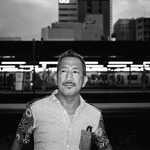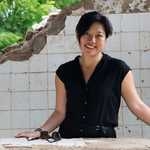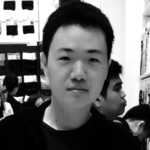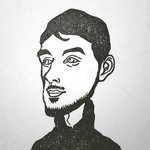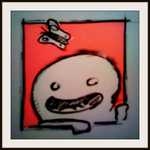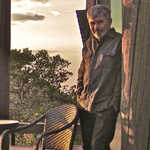The decision whether to opt into or out of using a technology, product or service… is increasingly becoming one of whether you want to opt into or out of society.1
Old Habits
It took a cyclist to show me the error of my ways.
It’s funny how a inquisitive personality and a job that affords creative and social explorations, leads you down a curious path. Roughly a year ago, I moved out of my school apartment2, pursuing an alternative way of living not too dissimilar to the American dirtbag climbing or Japanese car-danchi snowboard cultures. Purposely setting out to disrupt, challenge and sometimes reject the cultural norm of home and office; exploring the balance between life and work. Paying close attention to my basic requirements and dependencies. Seeking experiences in order to learn, document, and communicate; intending to self-improve and ultimately educate.
Is it feasible to propose a new etiquette or prioritisation for creative living, working, and learning; considering Office, Home, Commute, Time, Etiquette, Communication?
In addition with the recent move of our school campus, I took the opportunity of not making use of an office, in substitute I decide to make my office small enough to take with me at all times. It’s more of a mental shift in reality, letting go of all the trappings—and all the egotistical ties—opting for the bare essentials. In this way, my office can be anywhere depending on my needs.
For example. - School cafe. A social place where spontaneous conversations with students and teachers frequently occur. - Library. For quiet, yet social research. - Workshops. Full of tools for prototyping and making. - Field office. Anywhere research and adventure my take me. - Pop-up office. Places focused around one project, typically existing from 6 months to 1 year.
So, back to the cyclist.
11pm—regular—regular campsite, sleeping at my regular time; as per usual being the only person around.
5am—nature calling—noticing a solo tent and bicycle on the opposite bank, impressed, but thinking little of it drifting back to sleep.
7am—gone—tent, cyclist and any evidence of someone ever being there vanished.
This lonesome traveller arriving during the night, departing at the crack of dawn. Whereas I’m stumbling about, making coffee and trying to motivate myself for the day ahead. I remember when I started all this, jumping up with the sun and enthusiastically savouring the sights, sounds and smells of waking in nature. What happened? I’ve not lost my adventurous spirit, but this cyclist revealed the error of my ways; the slow slide back into a convenient mindset. It’s time to adjust, finding new and interesting ways to keep positive and learning—always learning.
“To keep on going, you have to keep up the rhythm. This is the important thing for long-term projects. Once you set the pace, the rest will follow. The problem is getting the flywheel to spin at a set speed—and to get to that point takes as much concentration and effort as you can manage.”3
New Habits
I decided to go slower and spend longer when travelling—in mountains and in general—taking more time to see, hear and smell, the life and world around me. Last year I was intent on going faster & further, making big changes. To some extend was helpful to keep active, or as Murakami puts is ”getting the flywheel to spin”. However, now that I’ve established a routing of moving and working, I feel it’s time to slow down to a more sustainable pace and refine some of the details. Inspired by the writings of John Muir4, which I wholeheartedly recommend. I was struck by the amount of time he would spend in one location simply observing, sketching and taking note. Being such inspired, I endeavour to slow down, taking out my earphones and opening my senses to the here & now; giving myself more time for observation, documentation and communication.
Afterword.
I always struggled with having too many offices and too much stuff, it’s refreshing to lets things go, physical and digital… I still have too much stuff and I have to fix that digital dripping tap.
-
Chipchase, J. Design Anthropology, PopTech Camden Maine USA, 2011, viewed 25th February 2014, http://poptech.org/popcasts/jan_chipchase_design_anthropology. ↩
-
Typically I spend my time between my family home and my place of work, with some 130 km separating the two. Of course when at home I live and work at home, but up until a year ago, when at work I stayed in a poor excuse of an—typical representation of 21st century living in Japan—apartment. ↩
-
Murakami, H. What I talk about when I talk about running, 2008 (Knopf, US) ↩
-
John Muir. (April 21, 1838 – December 24, 1914) His book My First Summer in the Sierra 1911, (Houghton Mifflin) being a good starting point. I personally enjoyed Steep Trails 1918, (Houghton Mifflin), of which I have returned several times. ↩


